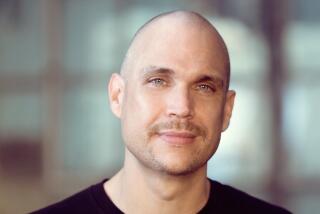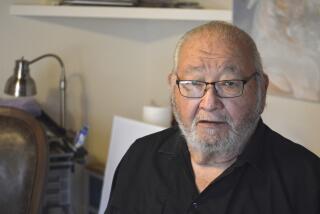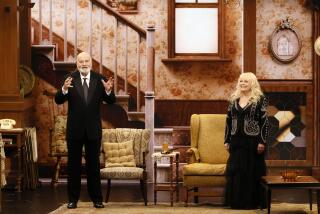Champion of the American novel
|
|
April 10, 2008
NEW YORK -- The late Norman Mailer, a novelist and cultural provocateur who was rarely at a loss for words, was remembered at a memorial service Wednesday as a man whose deep and abiding commitment to the American novel will be his most enduring legacy.
Long after the feuds and quarrels that Mailer carried on with other authors are forgotten, friends and family members said during a Carnegie Hall ceremony, his willingness to take chances on behalf of art -- and his great successes -- will be what future generations remember.
Mailer, a two-time Pulitzer Prize winner, earned plaudits over six decades for influential and bestselling works such as “The Naked and the Dead,” “The Executioner’s Song,” “The Armies of the Night,” “Oswald’s Tale: An American Mystery” and many other works of fiction and nonfiction.
The author, who died of acute renal failure in November at 84, got up each morning and faced challenges like everyone else, novelist and essayist Joan Didion told an overflow crowd.
“But he knew the risks” of creating something new, “and the difference with him is, he kept taking them. . . . I can think of no other writer with the character to have risked this much and brought it home,” she said.
Novelist Don DeLillo, recalling Mailer’s obsessive belief in the power and mission of the American novel, described him as “the writer in opposition, the individual who confronted power. . . .
“Mailer was not just a voice but a force, a provocateur and, finally, a writer. He was a great novelist figuring out the world, sentence by sentence.”
Others who lined up to remember Mailer, beyond family members, included public TV host Charlie Rose, journalist Tina Brown, writers William Kennedy and Lawrence Schiller, actor Sean Penn and Lonnie Ali, wife of Muhammad Ali, who was friendly with Mailer.
Family members said they were forming a writers’ colony in the author’s name that will offer fellowships and be located at his longtime home in Provincetown, Mass.
During his storied career as an author, antiwar activist, political candidate, journalist, filmmaker, boxing enthusiast and celebrity, Mailer often seemed to be as famous for his flamboyant personality as his art.
But during the service, family members recalled a loving dad who challenged his nine children to realize their full potential.
They talked about the unique, sometimes comical challenges of growing up with a famous father who had divorced five wives.
His sister, Barbara, described “a loving, supporting and certainly exciting person to be with.”
Sam Radin, Mailer’s cousin, recalled that Mailer read “The Iliad” during a hospital stay for heart bypass surgery and compared himself to warriors in that epic whose chests were torn open, saying: “I’ve been a warrior all my life.”
Nephew Peter Alson, remembering Mailer’s last hospital stay, when death was imminent, talked about how the novelist seemed to rally when family members brought him his very last drink of rum, orange juice and water.
Daughter Kate Mailer, remembering her turbulent adolescence, said “it’s hard to rebel against a father when your father is Norman Mailer.”
She broke up the crowd in telling the story of how he insisted that each of his children go sailing with him in rough waters off Maine.
“He did this so we’d get to know each other under dire circumstances,” she said. “He believed that we had to face our fears by engaging our fears.”
The tributes remembered Mailer’s quixotic campaign for mayor of New York; his blazing of a new path with long-form journalism; his feuds with fellow literati like Gore Vidal and William F. Buckley; his longtime marriage in the last chapter of his life to Norris Church, who sat at the front of the hall and was applauded.
One after another, the words kept pouring in. And although Mailer himself would have appreciated all the compliments, he had his own takes on life, death and an artist’s real legacy.
During an interview with The Times last year, Mailer said he didn’t fear death because he believed in reincarnation. He was, however, a realist. Asked to explain, the frail, aging author told a joke he often used during lectures.
“I’ve died and gone to heaven, where an angel sits in a big room waiting for your arrival,” he said.
“The angel greets me warmly, says they’ve all been expecting me, and asks what I would like to be in my next life, even though they have already made their decision.”
His blue eyes twinkling, Mailer said: “I tell them I want to return as a black athlete. The angel says apologetically: ‘Oh, Mr. Mailer, everybody wants to do that, there’s no room. We have you down as a cockroach -- but you’ll be the fastest cockroach on the block.’ ”
More to Read
Start your day right
Sign up for Essential California for news, features and recommendations from the L.A. Times and beyond in your inbox six days a week.
You may occasionally receive promotional content from the Los Angeles Times.






